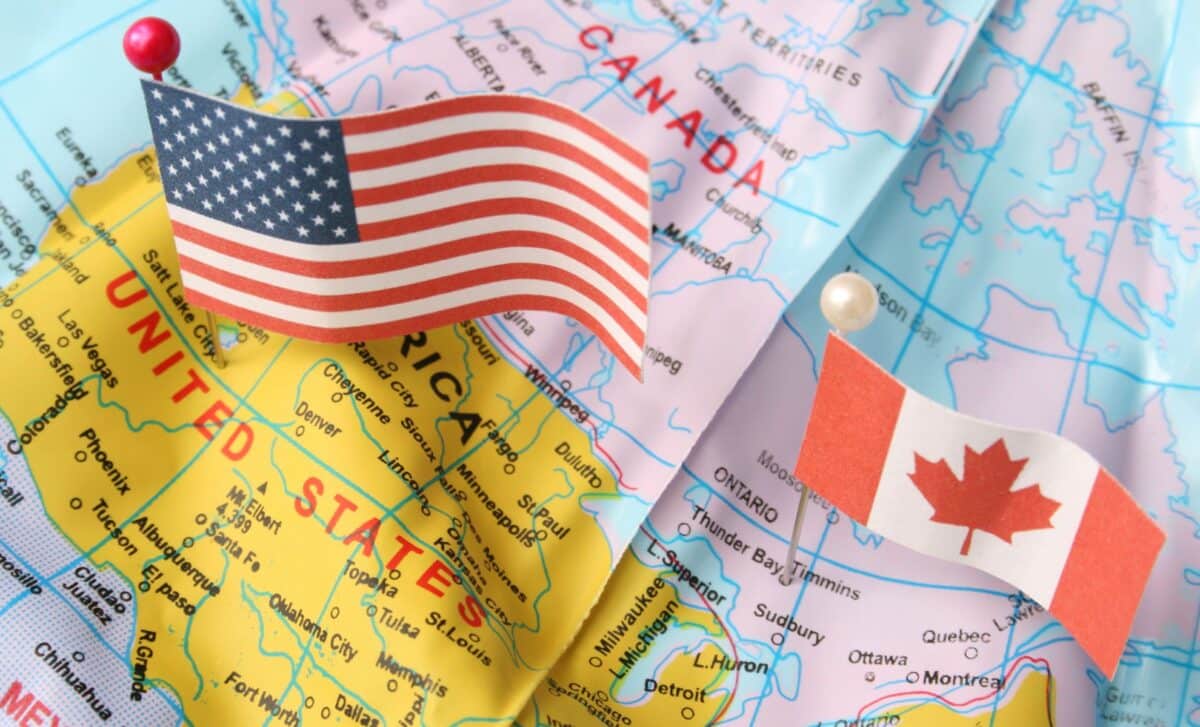New tariffs imposed by the United States on Canadian imports have ignited concern among communities along the border, where economic and social ties run deep. With a 25% tariff on most Canadian goods and a 10% tariff on oil and gas, the measures have triggered fears of price hikes, supply chain disruptions, and retaliatory action from Canada.
Residents and business owners fear that tariffs will not only increase costs but also weaken relationships between the two nations. The situation has sparked widespread concern in border regions such as Alaska, Maine, and Washington, where communities rely on cross-border trade for essential goods and economic stability, according to ABC News.
Economic Impact on Small Border Communities
Many small towns and cities in the US and Canada rely on one another for goods and services. In Skagway, Alaska, just 110 miles from Whitehorse, Canada, the impact of tariffs could be severe. Residents frequently cross the border for groceries, medical care, and other necessities, while the Alaskan port is vital for Yukon’s mining industry.
The rising costs of essential supplies such as steel and lumber could make life more expensive in an already high-cost region. In Point Roberts, Washington, a US exclave geographically separated from the mainland, residents rely on Canada for utilities and supplies.
Local businesses fear that tariffs could discourage Canadians from visiting, harming the area’s economy. Some residents are even petitioning British Columbia’s government for exemptions from retaliatory measures.
Trade and Industry Under Pressure
Industries on both sides of the border function as an integrated network, making tariffs particularly disruptive. The automotive sector, concentrated around Detroit and Windsor, is especially vulnerable. Components often cross the border multiple times during production, meaning tariffs could apply more than once, increasing costs.
The energy sector is also at risk. Montana, a key transit point for Canadian crude oil and natural gas, imports billions of dollars’ worth of these resources annually. With high energy consumption, especially in winter, residents and businesses could see rising fuel prices, further straining local economies.
Canadian Retaliation and Consumer Response
Canada has made it clear that it will not remain passive. The country’s proposed 25% tariff on American products, including wine, cigarettes, and firearms, could hit US businesses reliant on Canadian customers.
Prime Minister Justin Trudeau has urged Canadians to buy domestic products and vacation within the country, a move that could reduce cross-border tourism and trade. This sentiment is already affecting consumer behaviour.
In Buffalo, New York, breweries that depend on Canadian-sourced materials, such as aluminium cans and malted grain, worry about higher costs. Breweries also count on Canadian visitors, but anti-US sentiment could keep them away. A local tourism campaign in Canada has even been paused due to negative reactions.
The Future of Us-Canada Trade Relations
Tariffs may bring unintended consequences, damaging industries that depend on cross-border cooperation. The lobster industry in Maine, for example, exports large quantities of its catch to Canada for processing before re-importing it for sale. Tariffs could disrupt this cycle, increasing consumer prices and reducing profit margins for American fishermen.
The escalating trade dispute raises questions about the long-term future of US-Canada economic relations. Businesses and residents along the border worry that ongoing tensions could permanently alter trade patterns, creating lasting economic challenges for both nations.









